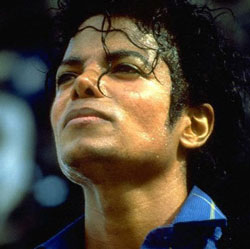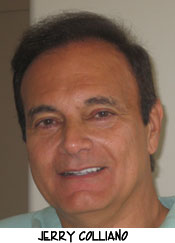
Almost every politician likes to utter the cliches of ‘helping’ or reaching out to the young people. Very few do more than roll up take a few pictures and bounce until the next photo op. Very few have taken the steps to craft legislation that would lead to young people being empowered. The conventional wisdom is that young people don’t vote so why bother doing anything for a segment of the population that doesn’t vote or put much pressure on to move in a particular political direction. Such was not the case with Ted Kennedy. He took that aspect of his career very seriously.
Our good friends at MTV lay out a few of Kennedy’s accomplishments with respect to creating and pushing bills designed to help young people. We hope folks take this to heart and commit themselves in following on those footsteps with the goal of taking the late Senator’s legacy to new heights.
-Davey D-
How Did Senator Edward Kennedy’s Work Affect Young People?
Late senator helped lower voting age to 18 and sponsored many college grant and loan programs.
By Gil Kaufman
http://www.mtv.com/news/articles/1619575/20090826/index.jhtml

Young people lost a key ally in the Senate with his passing
Senator Edward Kennedy
was known for many things in his 46-year Senate career, including a tenacity that could put the fear into presidents both Democratic and Republican, a willingness to work with colleagues across the aisle to pass major legislation and a focus on improving the lives of children and young people. For decades, Kennedy, who passed away on Tuesday at 77 after a long battle with brain cancer, sponsored a number of bills that greatly enriched the lives of America’s youth.
One of Kennedy’s early triumphs was his participation in creating the National Teachers Corps, part of the Higher Education Act of 1965 that helped to provide scholarships for teachers who agreed to spend two years working in economically disadvantaged communities in the U.S., training them to work in low income, inner-city and rural schools. Three years later, he also championed the Bilingual Education Act of 1968, which required schools to offer bilingual education programs.
Another of his most lasting legacies for young voters is his amendment of the Voting Rights Act in 1970, which laid the groundwork for a constitutional amendment lowering the voting age from 21 to 18.
Kennedy was one of the key supporters of equal rights for female high school and college athletes under Title IX of the Education Amendments of 1972, which protected women from discrimination in educational institutions and increased opportunities for women to participate in college sports. In 1975, Kennedy was the original co-sponsor of the Education for All Handicapped Children Act (later the Individuals with Disabilities Education Act), which required free and appropriate education for children with disabilities in every state. He would also later sponsor legislation authorizing grants for early learning for infants and toddlers with disabilities and a child-care act for members of the military that is still considered one of the best child-care systems in the country.
Among his initiatives in the 1990s that impacted the lives of young Americans: the repeal of the ban on women serving as combat aviators in the armed services, an expansion of the early education Head Start program, a $500 million appropriation to expand the Summer Jobs for Youth Program and the establishment of the Direct Lending Program, which allowed the Department of Education to provide low-cost loans to college students to cover educational expenses.
The senator offered his crucial sponsorship to another important bill in 1993, helping to secure the passage of the National Community Service Trust Act, which created AmeriCorps, a program that offers educational grants for more than 75,000 students a year who agree to do volunteer service after college.
In one of his most controversial legislative initiatives, Kennedy worked with President Bush in 2001 to pass the No Child Left Behind educational act, an often-maligned bill that set standards for schools in an effort to close achievement gaps.
Long an advocate for an increase in the minimum wage — which affects many young workers — Kennedy finally succeeded in 2007 in passing the first increase in the federal minimum wage in more than a decade, from $5.15 an hour to $7.25 an hour. That year, he also worked on the College Cost Reduction and Access Act, which authorized the biggest increase in student aid since the G.I. Bill in 1944 and included a loan-forgiveness program that allows more college graduates to go into public service.
In one of his final efforts on behalf of young Americans, Kennedy co-sponsored the 2008 Higher Education Opportunity Act, which expanded grants to low-income students, worked to reform the student loan marketplace, simplified the process of applying for federal financial aid and held colleges more accountable for their costs.







 This is an interesting concept (having a morality clause) that has obviously grown out of the frustration that many feel when they hear about a high paid recording artists acting out in public or is accused of committing a crime. The most recent incident being a stash of drugs found in the home of Jadakiss who at press time was not arrested or wanted by police. While a morality clause may have some effect in the NFL or NBA it is likely not to work in the music arena for a number of reasons.
This is an interesting concept (having a morality clause) that has obviously grown out of the frustration that many feel when they hear about a high paid recording artists acting out in public or is accused of committing a crime. The most recent incident being a stash of drugs found in the home of Jadakiss who at press time was not arrested or wanted by police. While a morality clause may have some effect in the NFL or NBA it is likely not to work in the music arena for a number of reasons.  Roger S.”The Hammer” Goodell is the Commissioner of the National Football League (NFL), he was chosen to succeed the retiring Paul Tagliabue in 2006. He is nicknamed “the hammer” because he has been very tough on most NFL players.
Roger S.”The Hammer” Goodell is the Commissioner of the National Football League (NFL), he was chosen to succeed the retiring Paul Tagliabue in 2006. He is nicknamed “the hammer” because he has been very tough on most NFL players.
 Terry Teachout wrote an excellent article recently in The Wall Street Journal about lessons the media industry can learn from the last big technological and sociological revolution when television replaced radio.
Terry Teachout wrote an excellent article recently in The Wall Street Journal about lessons the media industry can learn from the last big technological and sociological revolution when television replaced radio.

 WASHINGTON – Bowing to Republican pressure and an uneasy public,
WASHINGTON – Bowing to Republican pressure and an uneasy public,